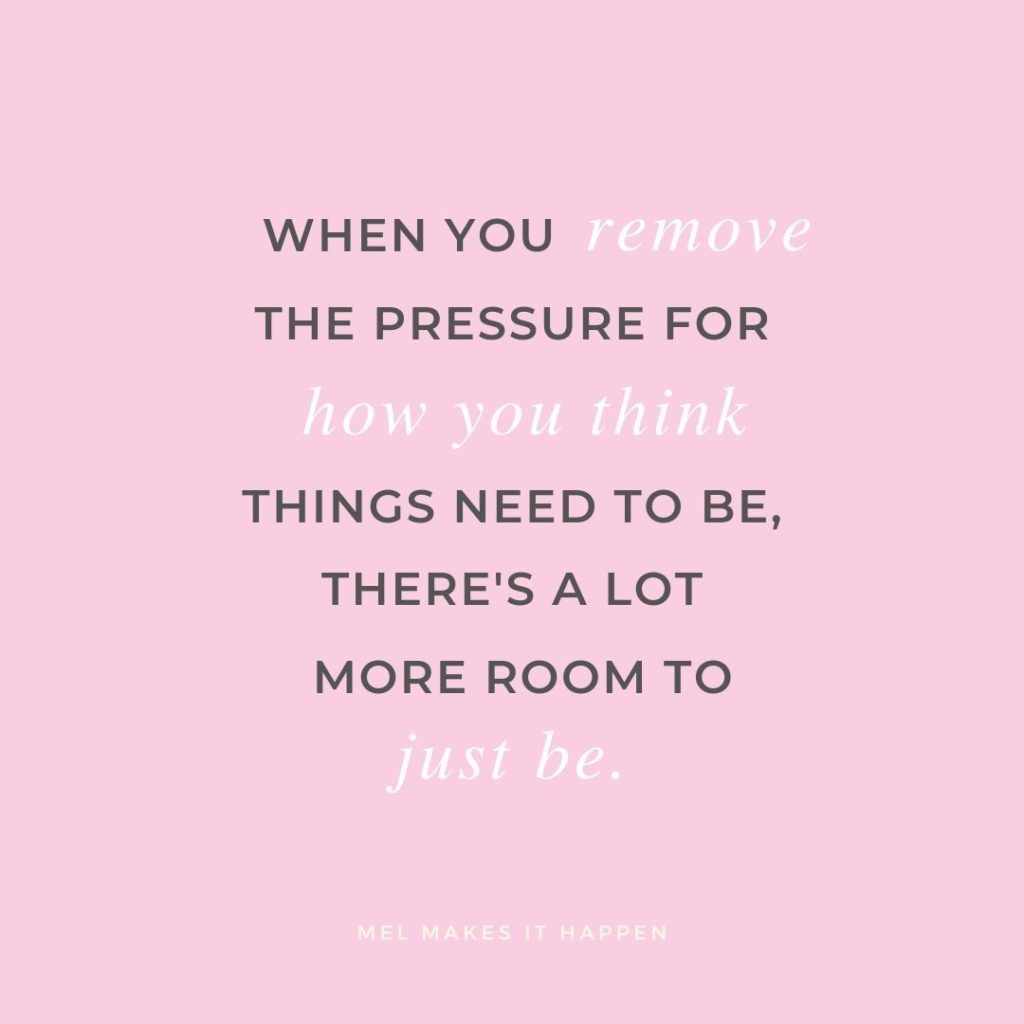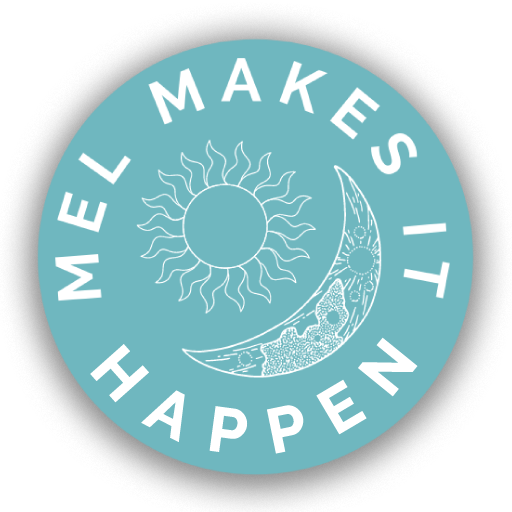How and why do you do the things that you do? Kind of a big question, I know.
We’re all full of habits and learned responses for the way we behave and think. Most of these aren’t harmful but there are some thought patterns that we create are what I call mental traps. This is when we feel obligated to follow convention or scripts we’ve been given even though our soul is craving something else.
When you create rules for yourself about how you’re doing a task or how you feel, that starts to sink in on a deeper level. In a society with professions and guide books on how to do everything, it can make you feel as though there is only one way for how things should be done.
Yet, some of the best outcomes come from ditching the status quo, mixing colors that don’t normally go together, or venturing from the steps listed in a recipe.
When you remove the pressure for how you think things need to be, there’s a lot more room to just be.
Sometimes there are things that do require certain steps or qualities that may be difficult for us to follow.
Historically, I can say that when I put a lot of pressure on the thing I’m doing (and myself, by consequence) I grow to detest the activity, task, or whatever it is. For example, we all used to have to write essays in school and it probably caused some stress and lack of sleep. I definitely associated writing with essays and, years after getting out of school, I re-learned the value of writing.
I thought writing was only used for essays, books, journalists, or other purpose-driven media reasons. I didn’t think writing could just be for FUN. Once I separated from the ideas of what I thought writing involved (based on rules taught in school), like, you have to use fancy syntax, metaphors, create convincing arguments, etc., I was able to use it as a form of expression!
Even if essays were all you knew, too, there’s no point in writing off (pun intended) all other forms of writing because you truly get to set the bar for what works for you.
You still might be thinking: SHOULD I EVEN TRY IF I DON’T HAVE NATURAL TALENT?
There are some areas that we may be less inclined to engage in, or that we are not as talented as some other people. If we have genuine interest in a field of study, project, topic, hobby, or anything then we have go for it! Natural talent might make exploring these easier but that alone does not mean that we cannot do a task just because it’s challenging. I think not having natural talents should be treated like any other obstacle. Obstacles teach us growth and give us a reason to learn to do something in a way that is unique to us.
So, to keep with the writing example from before, instead of creating the self-dialogue about why you have to write in a certain style, you could focus on the intention of why you want to write. What is it you want to say?
Focus on the message and WHAT you want to convey, rather than HOW it’s going to sound or what other people are going to think of it. That gets you out of the mental trap of obsessing about things that are not within your control (how others view your writing) and bring it back to what you are capable of doing.
Beyond that, you can also get to establish the intention for why you’re doing something. In a society like ours that encourages specialization and making money off of everything, it’s also okay to want to do things just because.
The way you do something produces an outcome of the same nature.
I’m going to borrow an example a friend of mine gave me a recently. I was talking about the process for painting, that I have found to be useful for me. I mentioned the step of priming a canvas because that helps the other colors show up better, and is also ideal for texture. My friend said that is quite fine, but if the intention is to just paint for fun, maybe he would forgo that step of priming a canvas. If you want to do something just for fun, you want to do that right now and waiting and extra couple of hours for that primer to dry is taking away time from the fun that could be had from painting right now.
It was really interesting to hear that because there are all sorts of things that we feel require a process or steps to complete but it is truly the intention that we have that defines how we approach them. How can we take away some of the expectations, responsibilities or steps that we think are necessary?
Everyone can say that they have a formula or process that works for them, but you don’t have to follow someone else’s formula or process.
I can attest to not separating my wet and dry ingredients when baking and I think what I bake turns out just fine! That might sound sacrilegious to some bakers but if my intention is to just whip something up that is going to be tasty and not use a whole bunch of dishes, then I think I’m doing a pretty good job for myself.
This of course does not apply to areas of work or tasks of expertise that do require certain steps to be conducted properly. In no way am I trying to take away from the systems, methodologies, and principles well-established in certain fields. You wouldn’t want a surgeon taking shortcuts while you’re under the knife, would you? There’s many reasons why certain steps in certain lines of work are necessary. But what I’m talking about here are the everyday tasks that we think are necessary or struggle with because of the way we view them.
My goal over the past few years has been to find more ease.
That can come from adding in moments of rest and relaxation, but it can also come from the way I engage in moments throughout the day, every day. I’ve frequently said about myself: I have trouble relaxing. A big part of that script comes from my idea of what relaxing involves. If I imagine that I just have to be sitting down and not doing anything, then yeah that sounds like a drag.
If I reframe my idea of relaxing to involve, say, not doing something under a deadline or not doing something too mentally stimulating, then that is more approachable. Where are places that you could lighten the expectations for how you do something? Essentially, where are places that you could reframe how you think you need to do something?
To go back to the earlier example of painting, if you’re trying to just have fun, then forget about all the stuff that you think is required. If the intention is to create a high-quality, museum-worthy painting, then perhaps you’ll want to investigate what steps make for a vibrant and long-lasting painting.
Many times how we think something needs to be is what keeps us from learning more or diving into something that is new to us. If we just take a step back, we can easily reframe our intention and incorporate some ease into our mind and activities. From that place, we can do things because we want to and not because we think we have to.
Do you hold expectations about how you think things should be done? What’s an area you can reframe with a new intention?
xo,
Melanie
If you enjoyed this article, I’d love it if you could share it–email it, text it, or share on social media!
Pin it!


